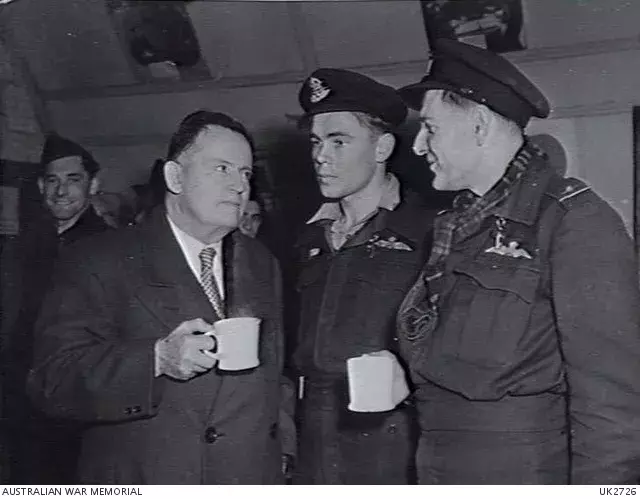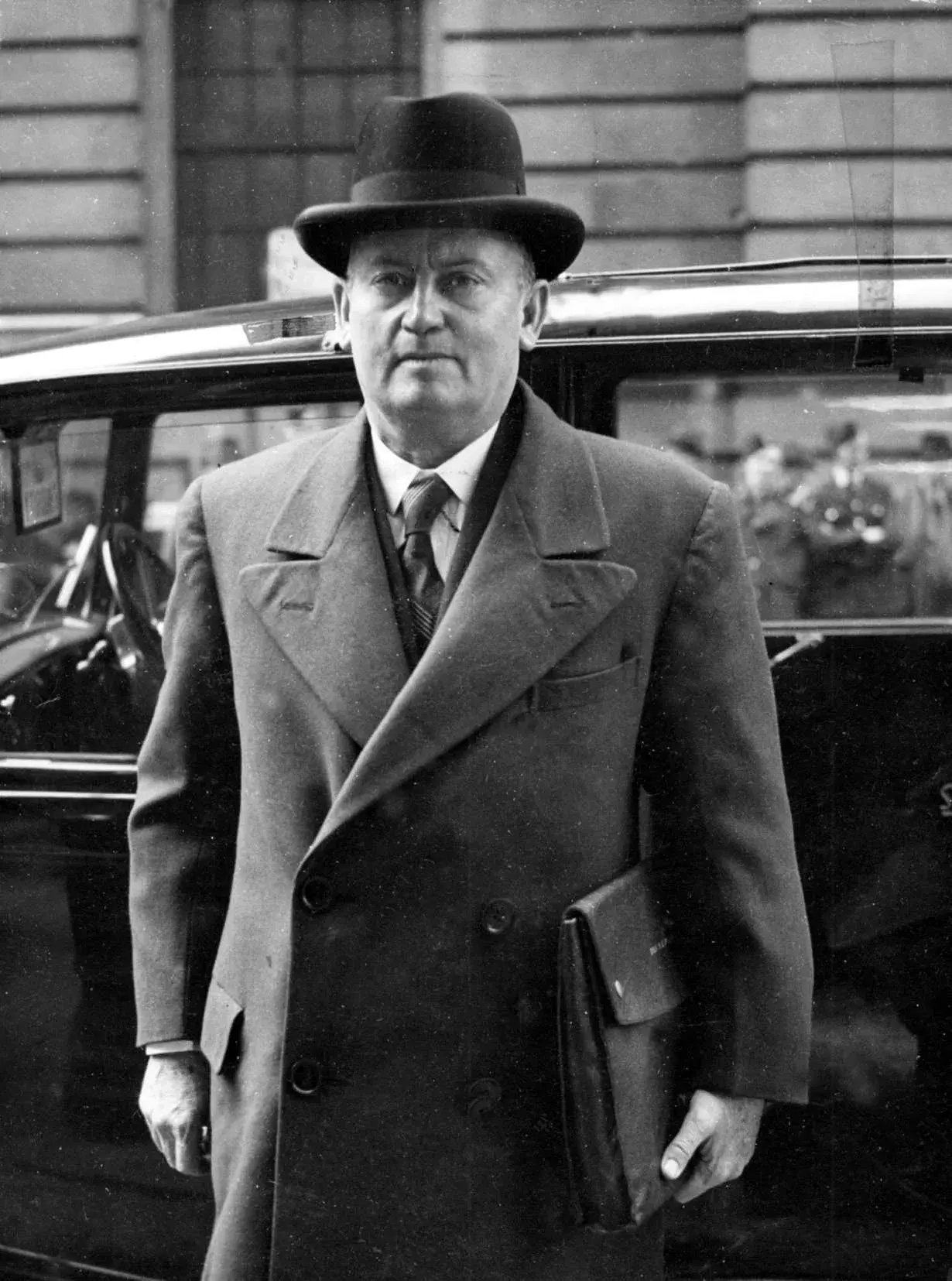FRANK FORDE
Member of the Privy Council (1944)
Frank Forde became Australia's 15th prime minister, the day after John Curtin died in office.
18 July 1890
Mitchell, Queensland
28 January 1983
Brisbane, Queensland
Vera Forde
Australian Labor Party
Photo: Martin/Fairfax
About
With political experience from state politics during World War I and federal politics during the Depression, Frank Forde took on significant responsibilities for directing Australia's war effort during the 1940s.

Photo: Australian War Memorial
He was deeply committed to his party, to the point of working as an organiser after his parliamentary and diplomatic career had ended. Frank Forde was willing to step up when required, and step back when the party's decision was that others should lead.
Forde worked as a teacher, railway clerk and telegraphist before transferring to a position at the Rockhampton post office in 1914. There he quickly became a prominent figure in organisations such as the Australian Natives' Association.
Forde won the State seat of Rockhampton in a by-election in May 1917, and held the seat until he was elected to the Federal seat of Capricornia in 1922. Forde moved up the Labor ranks and, in 1931, was one of the few Labor ministers to survive the Scullin government's defeat.
Following Scullin's retirement in 1935, Forde contested the leadership, but was defeated by John Curtin by a single vote. Forde's contribution as loyal deputy during the years of Opposition transitioned into the much greater responsibilities of Deputy Prime Minister, Minister for the Army and member of the War Cabinet after Curtin became prime minister in 1941.
Losing Capricornia to a returned war hero in 1946, Forde then served as Australian High Commissioner in Canada for seven years.
MILESTONES
Curtin lies in state in King's Hall
Members and senators move in a procession past Curtin's coffin as it lies in state in King's Hall at Parliament House on 6 July.
Curtin's funeral
On 7 July, Prime Minister Forde flies to Perth, accompanying Elsie Curtin in the Governor-General's private aircraft, for John Curtin's funeral the following day.
Labor caucus meets to choose Curtin's successor
Ben Chifley, Norman Makin and Frank Forde stand for the leadership of the Labor Party. Ben Chifley is elected, and Frank Forde becomes Deputy Leader again.
360° VIEW
Parliament
Frank Forde was sworn in as prime minister the day after the death of John Curtin in office and just weeks before the announcement of the surrender of Japan and the end of the Second World War. At this time, the Labor Party held 49 seats, while the United Australia Party held 12 seats and the Country Party 7 seats.
The strong position of the government was due to the Labor party's successful strategies to maintain unity and mobilise the war effort. The focus of Forde's short term as prime minister was to help the Curtin family, the parliament and the country come to terms with the loss of the prime minister who had steered them through one of the most challenging periods Australians had faced.

Photo: News Ltd/Newspix

